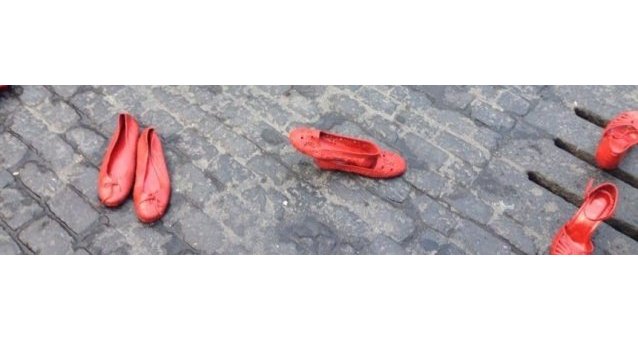EWL calls on EU Member States and EU institutions to do MORE to protect women & girls’ victims of human trafficking
EU Anti-Trafficking Day

[Brussels 18 October 2018] Trafficking in human beings (THB) is the world’s fastest growing crime. Though TBH is recognised in Europe by Directive 2011/36/EU of the European Parliament and Council of 5 April 2011 (on Preventing and Combating Trafficking in Human Beings and Protecting its Victims) as a serious human rights violation, European Union (EU) member states have failed to identify and adequately combat the evident trafficking crisis happening across Europe.
Trafficking in human beings exists in many forms, and has millions of victims worldwide, the most common of which being women and girls who are trafficked for the purposes of sexual exploitation. In 1998, the European Women’s Lobby (EWL)passed a landmark motion affirming that ‘prostitution and trafficking in women constitutes a fundamental violation of women’s human rights’.
According to the European Commission’s 2016 study ‘Gender Dimension of Trafficking in Human Beings’, victims of sex trafficking can be difficult to identify in mixed populations of women in prostitution. Article 18/4 of the mentioned directive asserts that in order to prevent THB, the states should discourage demand and consider criminalising the act of purchasing sex. Ultimately, male sex buyers exploit women’s vulnerability through financial power and control, coerce sex and therefore should be made accountable for their actions.
In several member states the purchase of sex acts is legal, which allows traffickers to use these legal frameworks to further exploit victims and to profit considerably from the demand for “sexual services”. Therefore, the EWL’s view is that countries which promote that system inherently encourage the phenomenon of sex trafficking; because when a country supports and enables the sex trade, trafficking of women and girls will grow.
Violence, sexism and racism are central to the system of sexual exploitation, in which migrant and refugee women and girls are especially vulnerable; 70% of women in prostitution have a migrant background and 75% are between 13 and 25 years old. The EWL proposes that the EU asylum system should include a gender perspective and should above all protect unaccompanied girls. Indication from grassroots organisations working on the frontlines indicate a growing phenomenon of missing girls in Europe; there is an immediate need for the collection disaggregated data and the identification of potential trafficking victims at reception centres across Europe. The EWL together with other women’s rights organisations ask; where are the girls? as only one out of ten unaccompanied minors are girls.
EWL’s project #WomensVoices put forward several recommendations for the protection of migrant and refugee girls, for example, training all stakeholders on the increased risk of sex trafficking and prostitution amongst other forms of violence, affecting unaccompanied girls. Moreover, today’s launched EIGE report (2018) Gender-Specific Measures in Anti-Trafficking Actions suggests that in order to prevent sex trafficking and to protect girl-child victims of sexual exploitation, comprehensive strategies must be implemented. For instance, EIGE recommends that priority needs must be given to the early identification of the child victims, adequate guardians must be appointed and the member states should ensure the development of age appropriate support programmes as well as gender specific accommodation services for children.
The women and girls coming to Europe are at great risk of gender-based violence and trafficking for sexual exploitation. Migrant and refugee women and girls are left massively vulnerable due to psychological violence/manipulation and trafficking. The EU response to the increase in migrants and recent migration policies have not improved the situation and failed to reflect a humanitarian response to this issue.
The EU institutions should honour their commitment to combat the crime of human trafficking, namely through ensuring that all Member states are efficiently transposing and implementing the aforementioned EU directive. EU Anti-Trafficking day on the 18th of October serves as a powerful reminder that we need to do more, taking into account that migrant and refugee women and girls are particularly vulnerable to this structural form of violence against women.




